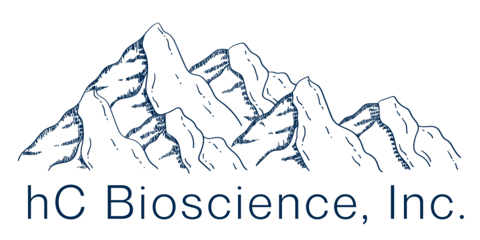hC Bioscience Announces Program in Duchenne Muscular Dystrophy and Reports In Vivo Data From tRNA-based Protein Editing Platform
hC Bioscience Announces Program in Duchenne Muscular Dystrophy and Reports In Vivo Data From tRNA-based Protein Editing Platform
- Program is developing anticodon engineered tRNAs as potential breakthrough treatment option for Duchenne muscular dystrophy (DMD) patients with shortened and nonfunctional dystrophin due to premature termination codons (PTCs)
- Data from mouse model of DMD demonstrate restoration of full-length dystrophin in muscle cells
- DMD program is currently in the early lead identification stage and joins hC Bioscience’s growing pipeline, which also includes programs for severe hemophilia A and cancer
BOSTON--(BUSINESS WIRE)--hC Bioscience, a biopharmaceutical company developing a fundamentally novel approach to treating genetic diseases through tRNA-based protein editing, today announced preclinical data supporting its program in Duchenne muscular dystrophy (DMD) at the CureDuchenne FUTURES National Conference in Orlando, Fla.
Jose Lora, Ph.D., Chief Scientific Officer of hC Bioscience, presented proof-of-concept murine data demonstrating that delivery of anticodon engineered (ACE) tRNAs to muscle cells restores production of full-length, native dystrophin despite the presence of a premature termination codon (PTC) that would otherwise result in a truncated protein. In DMD, a rare, fatal, progressive neuromuscular disease caused by mutations to dystrophin that affect about 300,000 males worldwide, PTCs account for approximately 26 percent of cases.
“We are grateful for the opportunity to share these results with the DMD community as we explore the potential of tRNA-based protein editing. No other treatment, approved or investigational, restores production of full-length dystrophin, and tRNA-based protein editing achieves that goal without altering the genome,” said Leslie Williams, CEO of hC Bioscience. “This rapidly emerging modality has the potential to be a new breakthrough therapeutic for about one in four people affected by DMD. We see protein editing as a key innovation for advancing patient care, and our goal is to work with families, physicians, and clinical researchers to realize its full promise.”
hC Bioscience’s DMD program is currently in the early lead identification stage and is supported by an investment from Cure Duchenne Ventures, the strategic investment arm of CureDuchenne, a global nonprofit committed to finding and funding a cure for Duchenne muscular dystrophy.
About hC Bioscience, Inc.
hC Bioscience is dedicated to improving the lives of patients through the development of first-in-class tRNA-based therapeutics that address a broad spectrum of genetically defined diseases and cancer. Our anticodon engineered tRNAs overwrite nonsense mutations that would otherwise result in truncated, nonfunctional proteins. This gene-agnostic approach is the foundation for a universal drug platform with the potential to treat many mutated genes using the same therapy. Our pipeline comprises a lead program for severe hemophilia A as well as programs for Duchenne muscular dystrophy and cancer.
Contacts
Justin Chen
jchen@tenbridgecommunications.com
